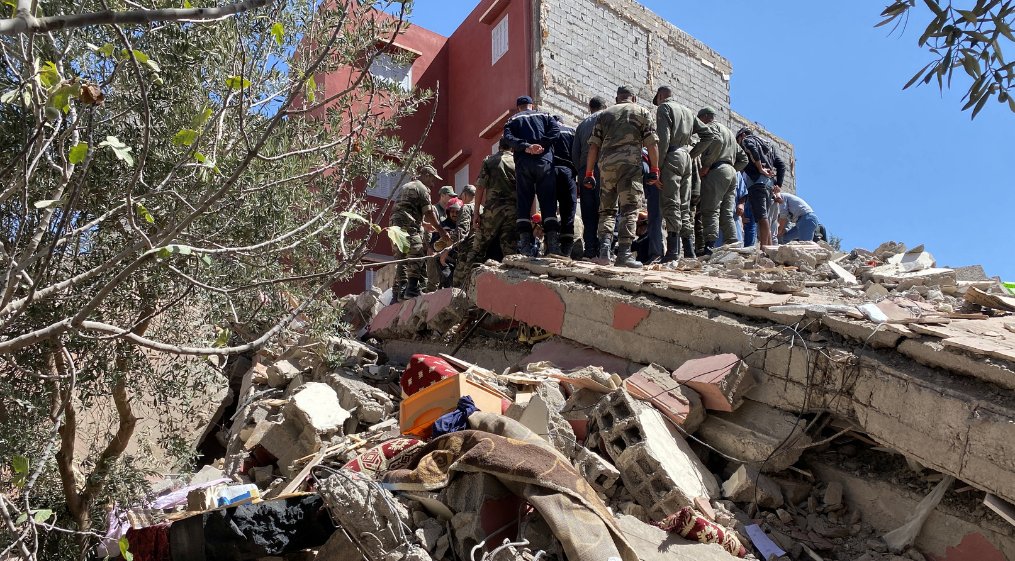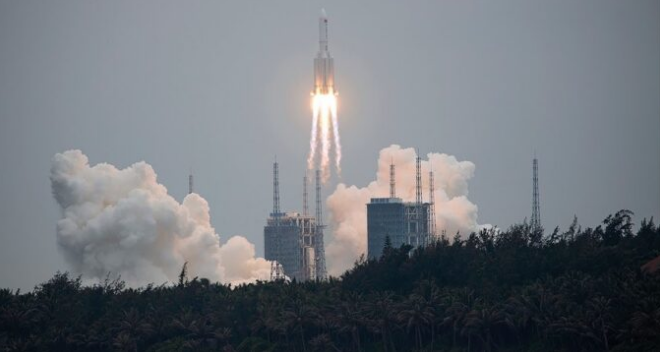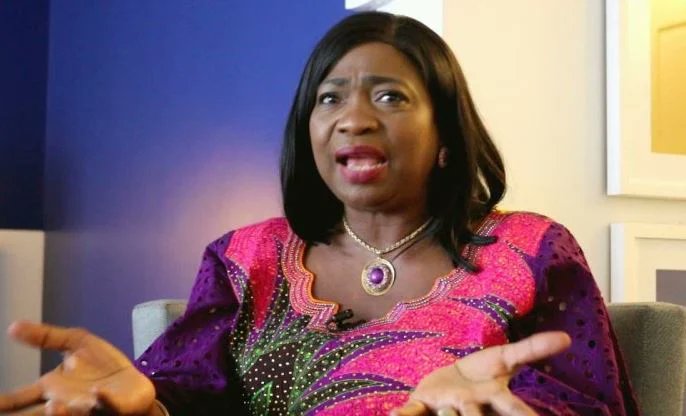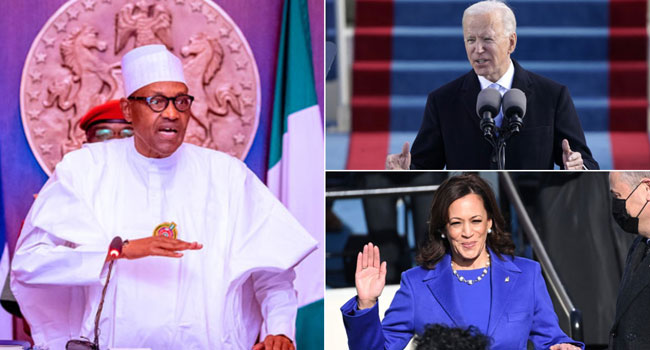Search for the missing continues as Morocco reels from powerful earthquake

Rescuers in Morocco have stepped up efforts to find survivors of Friday’s devastating earthquake, aiming to reach some of the more remote areas of the Atlas Mountains, amid reports some villages have been flattened.
The first foreign rescuers flew in to help after the North African country’s strongest-ever quake killed at least 2,122 people and injured more than 2,400, many seriously, according to official figures updated late on Sunday.
The 6.8-magnitude quake struck 72 kilometres (45 miles) southwest of the ancient city of Marrakesh, which is a popular tourist destination, and where many of the old city’s residents slept on the streets after their homes were damaged.
On Sunday an aftershock of magnitude 4.5 rattled the same region.
The mountain village of Tafeghaghte, 60km (37 miles) from Marrakesh, was almost entirely destroyed, with very few buildings still standing.
Civilian rescuers and members of Morocco’s armed forces searched for survivors and the bodies of the dead. As one body was recovered from the ruins of a house, four others were still buried there, residents said.
“Everyone is gone! My heart is broken. I am inconsolable,” cried Zahra Benbrik, 62, who said she had lost 18 relatives, with only the body of her brother still trapped. “I want them to hurry and get him out so I can mourn in peace,” she said.
Many houses in the mountains were built from mud bricks.
In the village of Amizmiz, near Tafeghaghte, an excavator dragged away the heaviest pieces of rubble before rescuers dug into the dusty debris to remove a body that appeared to be under a quilt.
The two villages lie in Al-Haouz Province, the site of the epicentre, where authorities recorded 1,351 deaths.
According to Moroccan public television, “more than 18,000 families have been affected” by the quake in Al-Haouz.
Lahcen Haddad, a Moroccan senator and former minister, described the difficulties of reaching remote areas, saying “Sometimes the roads [leading to the villages] are not paved, so you have to bring in the army in order to get to the population [there], and then you start rescue missions at the same time you are evacuating some of the injured.”
Rescue teams have also had to contend with rock slides blocking the roads into the mountains.
In Taalat N’Yaacoub, about 90km (56 miles) south of Marrakesh, efforts to find those trapped in the rubble continued. Waiting anxiously, having already lost nine members of his family, Mohamed Ait Ighral was hoping his remaining grandchild might be saved.
“It breaks my heart,” he told Al Jazeera. “I lost my daughter, Her children are gone. (I’m) waiting for one. Let’s hope he is alive.”
(Al Jazeera)
By the time, the boy was pulled from the rubble he was already dead. He will be buried near his parents’ in the village cemetery.
International support
With the kingdom in three days of national mourning, there has been an outpouring of international support and solidarity.
Spain’s defence ministry said an A400 airlifter had taken off from Zaragoza with 56 rescuers and four search dogs headed for Marrakesh to “help in the search and rescue of survivors”. Another military plane took off from a base in Torrejon de Ardoz near Madrid with 30 rescuers and four search dogs, an interior ministry spokesman said.
“We will send whatever is needed because everyone knows that these first hours are key, especially if there are people buried under rubble,” Defence Minister Margarita Robles told Spanish public television.
In addition to Spain, Morocco announced on Sunday that it had accepted aid from just three other countries – Britain, Qatar and the United Arab Emirates.
The interior ministry said in a statement that it had responded favourably “at this stage” to offers from the four “to send search and rescue teams”.
It said only four offers to help have been accepted because “a lack of coordination could be counterproductive”.
Other countries have also offered assistance.
A woman stands with her daughter in a village near Marrakesh [Mosa’ab Elshamy/AP Photo]
French President Emmanuel Macron said his country has mobilised “all technical and security teams to be able to intervene, when the Moroccan authorities deem it useful”.
Macron, along with Indian Prime Minister Narendra Modi and the heads of the World Bank, International Monetary Fund, African Union and European Commission, also pledged in a joint statement to “mobilise our technical and financial tools and assistance” to help the people of Morocco.
The United States said it also had search-and-rescue teams ready to deploy, and Pope Francis on Sunday expressed his continued support for those affected by the disaster.
“I thank the rescuers and all those who are working to alleviate the suffering of the people,” he said from the Vatican window above St Peter’s Square in Rome.
Algeria, which has long had tense relations with neighbouring Morocco, opened its airspace, which had been closed for two years, to flights carrying humanitarian aid and evacuating the injured.
Israeli Prime Minister Benjamin Netanyahu, whose country in 2020 established ties with Morocco, offered to send search-and-rescue teams, declaring that “Israel stands by Morocco in its difficult time”.
The International Federation of Red Cross and Red Crescent Societies has released more than $1m from its emergency disaster fund to support the Moroccan Red Crescent’s work on the ground.
The Red Cross warned it could take years to repair the damage.
“It won’t be a matter of a week or two… We are counting on a response that will take months, if not years,” said Hossam Elsharkawi, its Middle East and North Africa director.
The quake was the deadliest in Morocco since 1960 when an earthquake destroyed Agadir, killing more than 12,000 people
Al-Jazeera






